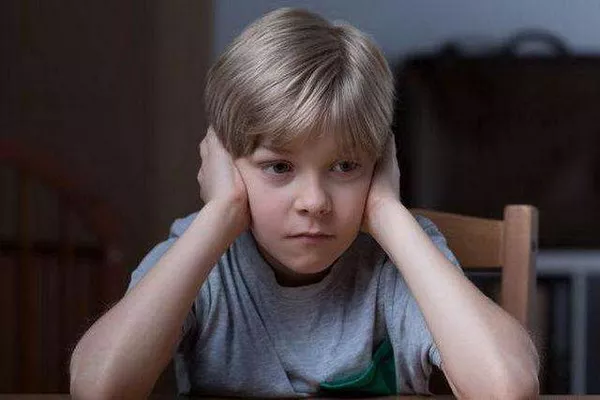Rebellious behavior in children can be a challenging aspect of parenting and child development. It is essential to understand the factors that contribute to rebellious behavior to effectively address and support children going through this phase. In this article, we will explore the key elements that can contribute to a child’s rebellious behavior and discuss strategies for parents and caregivers to navigate this period.
1. Autonomy and Independence
One significant factor that can make a child rebellious is their natural desire for autonomy and independence. As children grow and develop, they strive to assert their individuality and make their own choices. This newfound sense of self often leads to clashes with parental authority and a resistance to rules and boundaries. It is crucial for parents to strike a balance between granting age-appropriate independence and providing guidance to help children make responsible decisions.
2. Challenging Boundaries
Children may exhibit rebellious behavior as a means of testing boundaries and pushing limits. They may engage in behaviors that defy parental authority or societal expectations to assert their autonomy and challenge perceived limitations. This testing of boundaries is a normal part of child development as they navigate their growing sense of self and attempt to understand their place in the world. Setting clear and consistent boundaries, along with appropriate consequences for crossing them, can help children develop a sense of responsibility and understand acceptable behavior.
3. Peer Influence
Peer influence plays a significant role in shaping a child’s behavior, including rebellious tendencies. Children may be influenced by their friends or peer groups who engage in rebellious acts or exhibit defiant behaviors. They may seek acceptance and validation from their peers, leading them to adopt rebellious attitudes or behaviors to fit in or stand out. Parents can help mitigate the negative effects of peer influence by fostering open communication, teaching critical thinking skills, and encouraging positive friendships and social connections.
4. Emotional Expression
Rebellious behavior in children can be a manifestation of underlying emotions. Children may resort to defiance or rebellious acts as a way to express frustration, anger, or a sense of injustice. They may lack the necessary emotional regulation skills to cope with these feelings effectively. Encouraging open and honest communication, teaching emotional intelligence, and providing healthy outlets for emotional expression can help children develop constructive ways of dealing with their emotions, reducing the likelihood of rebellious behavior.
5. Family Dynamics
The family environment significantly influences a child’s behavior, including rebellious tendencies. In households with inconsistent discipline, excessive control, or a lack of emotional support, children may be more likely to exhibit rebellious behavior. Family conflicts, unresolved issues, or a breakdown in communication can also contribute to a child’s sense of frustration or dissatisfaction, leading to acts of rebellion. Creating a nurturing and supportive family environment that emphasizes open dialogue, mutual respect, and healthy conflict resolution can help prevent or mitigate rebellious behavior.
6. Developmental Factors
Rebellious behavior can also be influenced by developmental factors. During adolescence, hormonal changes and brain development can contribute to heightened emotions, risk-taking behavior, and a desire to assert independence. Understanding and acknowledging these developmental factors can help parents approach their child’s rebellious behavior with empathy and patience. It is essential to provide appropriate guidance and support while allowing room for the child to explore their identity and navigate the challenges of adolescence.
7. Environmental Influences
External factors such as media, societal norms, or cultural influences can shape a child’s rebellious behavior. Media depictions of rebellion, societal messages that challenge authority, or cultural values that prioritize individuality can impact a child’s perception of rebellious behavior as acceptable or desirable. Parents can counterbalance these influences by promoting critical thinking, discussing media portrayals, and fostering a strong set of personal values and ethical principles within the family.
Navigating Rebellious Behavior
When faced with a rebellious child, it is crucial for parents and caregivers to approach the situation with understanding and empathy. Here are some strategies to navigate rebellious behavior effectively:
Establish clear and consistent boundaries while allowing for age-appropriate autonomy.
Foster open and honest communication, providing a safe space for the child to express their feelings and concerns.
Encourage positive peer connections and guide the child in selecting friends who demonstrate healthy behaviors and values.
Teach emotional intelligence and provide tools for managing emotions effectively.
Cultivate a nurturing family environment that promotes mutual respect, effective conflict resolution, and emotional support.
Educate children about developmental changes they are experiencing and offer guidance on how to navigate them.
Counterbalance negative external influences by promoting critical thinking and fostering strong personal values.
Conclusion
Rebellious behavior in children is a normal part of their development as they strive for independence and self-expression. By understanding the factors that contribute to rebellious behavior and employing appropriate strategies, parents and caregivers can help children navigate this phase successfully, fostering their personal growth and well-being while maintaining a healthy parent-child relationship.
Related Topics:






















